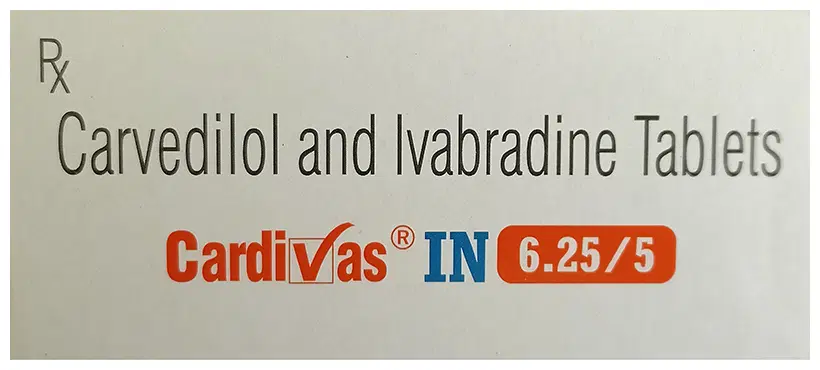Carvedilol, Ivabradine
Carvedilol is a non-selective beta blocker and alpha-1 blocker that works by reducing the heart rate and blood pressure. It is primarily used in the management of hypertension (high blood pressure), heart failure, and migraines. In addition, carvedilol can also be prescribed to prevent angina (chest pain) and for the treatment of certain cardiomyopathies (heart muscle diseases). The medication should be taken as directed by a healthcare professional and may cause side effects such as dizziness, fatigue, and diarrhea.
Ivabradine, on the other hand, is a selective heart rate lowering agent that works by slowing the electrical signals in the heart. It is mainly prescribed for the treatment of chronic stable angina (chest pain) and certain types of arrhythmias (irregular heartbeats), specifically those caused by a fast heart rate known as atrial fibrillation. Ivabradine is typically used in patients with a heart rate above 75 beats per minute, and it is usually combined with other medications to achieve optimal results. Similar to carvedilol, ivabradine should be taken as directed and may cause side effects such as headaches, dizziness, and nausea.
Both carvedilol and ivabradine are important medications in the management of heart-related conditions, and they should always be taken under the supervision of a healthcare professional. Patients should be informed about the potential side effects and follow the prescribed dosage and instructions to ensure the best possible outcome.

Showing all 10 results
Showing all 10 results









